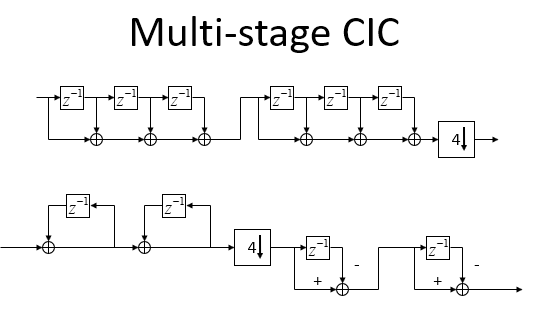
Course Description
Signal Processing For Wireless Communications
Course Name:
Course Start Date: Jun 4, 2026
Jun 11, 18, 25, Jul 7, 9
Q&A Workshops:
Location: Zoom Webinar
Speaker: Dan Boschen
Back To Courses > Signal Processing For Wireless Communications
Pre-Recorded Videos combined with Live Q&A Workshops
This is a hands-on course providing pre-recorded lectures that students can watch on their own schedule and an unlimited number of times prior to live Q&A/Workshop sessions with the instructor. Ten 1.5 hour videos released 2 per week while the course is in session will be available for up to two months after the conclusion of the course. Workshop sessions are recorded and Dan is available throughout the course to answer questions as well.
Course Summary
This course is a fresh view of the fundamental and practical concepts of digital signal processing applicable to the design of mixed signal design with A/D conversion, digital filters, operations with the FFT, and multi-rate signal processing. This course will build an intuitive understanding of the underlying mathematics through the use of graphics, visual demonstrations, and applications in GPS and mixed signal (analog/digital) modern transceivers. This course is applicable to Signal Processing algorithm development with a focus on meeting practical hardware development challenges in both the analog and digital domains, and not a tutorial on working with specific Signal Processing processor hardware.
Jupyter Notebooks
This course includes Jupyter Notebooks which incorporates graphics together with Python simulation code to provide a “take-it-with-you” interactive user experience. No knowledge of Python is required but the notebooks will provide a basic framework for proceeding with further signal processing development using that tool for those that have interest in doing so.
This course will not be teaching Python, but using it for demonstration. A more detailed course on Python itself is covered in a separate course also taught by Dan titled “Python Applications for Digital Design and Signal Processing”.
Students will be encouraged but not required to load all the Python tools needed, and all set-up information for installation will be provided prior to the start of class.
Target Audience:
All engineers involved in or interested in signal processing applications. Engineers with significant experience with Signal Processing will also appreciate this opportunity for an in-depth review of the fundamental Signal Processing concepts from a different perspective than that given in a traditional introductory Signal Processing course. Please contact us if you are uncertain about your background or if you would like more information on the course.
Benefits of Attending/ Goals of Course:
Attendees will build a stronger intuitive understanding of the fundamental signal processing concepts involved with digital filtering and mixed signal analog and digital design. With this, attendees will be able to implement more creative and efficient signal processing architectures in both the analog and digital domains. The knowledge gained from this course will have immediate practical value for any work in the signal processing field.

-
30-minute meeting to go over getting started with the course.
-
Correlation, Fourier Transform, Laplace Transform
-
Sampling and A/D Conversion, Z –transform, D/A Conversion
-
IIR and FIR Digital filters, Direct Fourier Transform
-
Windowing, Digital Filter Design, Fixed Point vs Floating Point
-
Fast Fourier Transform, Multi-rate Signal Processing, Multi-rate Filters
Topics / Schedule:
Speaker’s Bio
Dan Boschen has a MS in Communications and Signal Processing from Northeastern University, with over 25 years of experience in system and hardware design for radio transceivers and modems. He has held various positions at Signal Technologies, MITRE, Airvana and Hittite Microwave designing and developing transceiver hardware from baseband to antenna for wireless communications systems and has taught courses on Signal Processing for over 20 years. Dan is a contributor to dsprelated.com and Signal Processing Stack Exchange dsp.stackexchange.com , and is currently at Microchip leading design efforts for advanced frequency and time solutions.
For more background information, please view Dan’s Linked-In page at: http://www.linkedin.com/in/danboschen
Let’s Learn! Join Now
Explore the full course schedule and registration options on these platforms:
Client Testimonials









